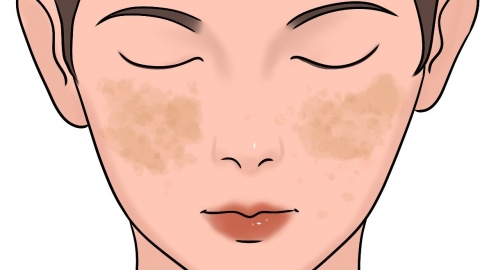How to remove facial age spots
Generally, facial senile lentigines, also known as facial seborrheic keratosis, may be caused by factors such as aging, ultraviolet radiation, endocrine disorders, hepatitis, and kidney disease. Treatment or relief can be achieved through general therapy, medication, and other methods depending on the specific situation. It is recommended to seek timely medical advice, identify the underlying cause, and undergo symptomatic treatment under a doctor's guidance. A detailed analysis is as follows:

1. Aging: With advancing age, the skin's metabolic and regenerative capacity gradually declines, making it prone to develop senile lentigines. This may also be accompanied by symptoms such as skin laxity and increased wrinkles. It is advisable to maintain healthy lifestyle habits, such as balanced nutrition, adequate sleep, and moderate exercise.
2. Ultraviolet radiation: Exposure to ultraviolet light stimulates melanocytes in the skin to produce excessive melanin, which deposits on the skin surface and forms pigmented spots. This may also be accompanied by dry and rough skin. In daily life, enhanced sun protection measures should be taken, including the use of physical or chemical sunscreen.
3. Endocrine disorders: Excessive hormone production or other factors may lead to endocrine disorders that affect melanocyte function, causing overproduction or uneven distribution of melanin, which results in senile lentigines. These may be accompanied by symptoms such as menstrual irregularities and mood swings. Patients can take medications such as Modified Xiaoyao Pills, Qizhi Xiangfu Pills, or Wujibai Feng Pills under a doctor's guidance.
4. Hepatitis: May be related to unhealthy habits, viral infection, and other factors, causing accumulation of toxins in the body, affecting skin health, and leading to pigmentation. Symptoms such as fatigue and jaundice may also occur. Patients may take medications such as Azathioprine Tablets, Bicyclol Tablets, or Recombinant Human Interferon α2b Injection under medical advice.
5. Kidney disease: May be associated with infection, immune dysfunction, and other factors, leading to ineffective elimination of metabolic waste and toxins from the body, resulting in the formation of senile lentigines on the face. Symptoms such as edema and frequent urination may also occur. Patients can take medications such as Furosemide Tablets, Hydrochlorothiazide Tablets, or Valsartan Capsules under a doctor's guidance.
Maintaining good lifestyle habits and proper dietary regulation can also help improve skin condition and reduce the formation and progression of senile lentigines.






